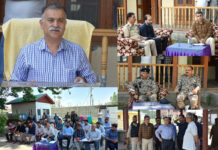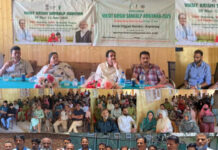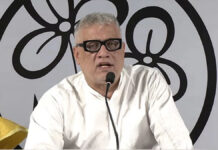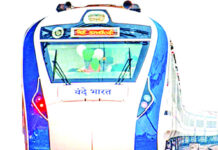Cape Town, Dec 8
Welcome to the future of South African bilateral cricket.
This is a place where players who don’t feature in international series will still remain available for the national side at major tournaments. And where players who grind it out in the bilaterals might just be placeholders for the superstars.
Does this sound revolutionary? It might not, because it’s been done before. Kind of. West Indies have long selected from their T20 franchise superstars for World Cups, even if they had not played for the national side.
Trent Boult gave up his New Zealand central contract in 2022 but was part of the 50-over ODI World Cup this year. And Jofra Archer last played international cricket in March and was ruled out for the entire summer but remained a traveling reserve for this World Cup.
Now, having conceded defeat to the financial clout of T20 leagues, that’s how South Africa will treat Quinton de Kock (and maybe even Faf du Plessis), who are currently playing cricket – just not for them. They’re both at the Abu Dhabi T10, where de Kock is opening the batting for the Delhi Bulls, which clashes with his other commitment to play for the Melbourne Renegades at the BBL, which also clashes with South Africa’s white-ball series against India. In that order, that’s his priority list.
That means de Kock will not play any international cricket for at least six months but he remains nationally contracted and is still expected to be named in the T20 World Cup squad. Du Plessis’ name has popped up again after white-ball coach Rob Walter mentioned him in a press conference earlier in the week and he subsequently confirmed his interest in a World Cup comeback. In the meantime, the show must go on.
It will from this weekend, where South Africa’s short international summer begins with an all-format visit from India in what would normally be a headline series. Instead, the white-ball games – three T20Is and three ODIs – will be played without several frontline players on both sides as workloads are managed, a fifty-over World Cup cycle ends, and the priorities of the global game shift.
The upshot of all this is that there is opportunity for players to establish themselves in the national side, whether or not they are able to sustain that through to a World Cup spot.
Take Matthew Breetzke. He made his debut in the third T20 against Australia in September – a series South Africa lost 0-3 – and scored five runs batting at No. 3. Given that de Kock and David Miller had been given a break for that series, and both are certainties in South Africa’s T20 XI, that could have been that for Breetzke and he knew it.
“I only got one shot at it, in the last game of that series,” he said from Durban, where the series starts on Sunday.
“This time, hopefully I will get all the shots. It frees me up to be the best that I can be.”
He doesn’t have to hope. Walter named Breetkze as the designated opener alongside Reeza Hendricks, after Breetkze impressed him with his work ethic and temperament against Australia.
While it is only a sample size of one, Walter said Breetke’s approach in the innings, where he made room and tried and to hit Marcus Stoinis over the mid-on early in the innings showed “the courage to make a play in that situation is sometimes worth more than the actual result.”
And Breetkze intends to continue in that vein. “I like to play positive cricket,” he said. “I will be looking to play the conditions but if it’s a good wicket, I will be out there trying to put the first foot forward.”
He also has the pedigree to back that up. After finishing the 2018 Under-19 World Cup as South Africa’s second-highest run-scorer, Breetzke was also the second-highest run-scorer in the 2021 domestic T20 Cup and the highest run-scorer in the 2022-23 first-class competition and is regularly in the conversation when it comes to the next crop of South Africa’s batters. So much so that he was picked up by Durban’s Super Giants in the SA20, where he batted as a floater and rubbed shoulders with some of the game’s greats, including the player he is now replacing, de Kock. He described the experience as “awesome,” because of the “crowds and the way we got treated on and off the field. It gets you used to international cricket in terms of media and crowds. I feel a bit more relaxed than if I had come in two or three years ago.”
And that’s really what sums up the way South Africa (and likely other countries) aim to develop their T20 game going forward: through their own league structure and then by having more high-profile players like de Kock in overseas leagues. Like most others, their schedule of international T20 fixtures is limited – South Africa play these matches and a three-match series in West Indies just before next year’s World Cup – so choosing a squad is based as much on performances in bilaterals as on league stats.
Another example is allrounder Donovan Ferreira, who earned an international call-up on the back of his SA20 performances and will also have the three-match series against India to make a case for future selections. South Africa’s other experimental picks are Ottniel Baartman, a medium-pacer who has been playing professionally for almost a decade and earns a call-up as Kagiso Rabada is rested, and Nandre Burger, a left-arm quick who is seen as a replacement for Anrich Nortje in this squad. Those are shoes for both to fill, as are Breetzke’s in de Kock’s spot and it will be important for the players to remember that’s not really the point.
As Breetzke said, facing India is a “special opportunity,” and even though the sparkle of bilateral white-ball games has been dimmed by leagues, there’s still a lot to play for.


























